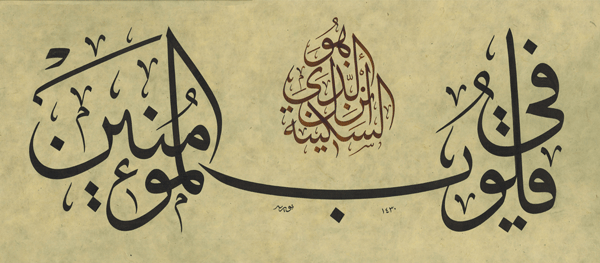The Shade of the Tree of Allegiance
After drawing water for the flocks of Shuʿayb’s (s) daughters, the Prophet Moses (s) withdrew under the shade (tawalla ila al-ẓill) of the tree and proclaimed:
“My Lord! Truly I am in need of any good that You may send down upon me.” (Q Qasas 28:24).
Observe, dear spiritual traveler, how God’s Kalim, His Intimate Converser, observes virtuous comportment by withdrawing under the shade under the Tree of the Oath of Allegiance (shajarat al-baʿya). Beware of direct exposure to the rays of the sun of Divinity. You have no ability to withstand its rays, for they obliterate all manifestations of duality. Withdraw then under the shade of Lordship (ẓill al-rububiyya), for its shade leaves room for servanthood. Cling to humility, and regard your ego with contempt, and remember that whatever spiritual opening that you may attain is only a minor opening. Cry out: “My Lord! Truly I am in need of any good that you may send down upon me.” Never become satiated of God’s bounty, for otherwise your spiritual opening will become a veil onto itself. And may the Everlasting Presence (haḍrat al-khulud) forever remain your highest saintly aspiration.
— Shaykh Mohamed Faouzi al-Karkari (Kaf al-astar)











